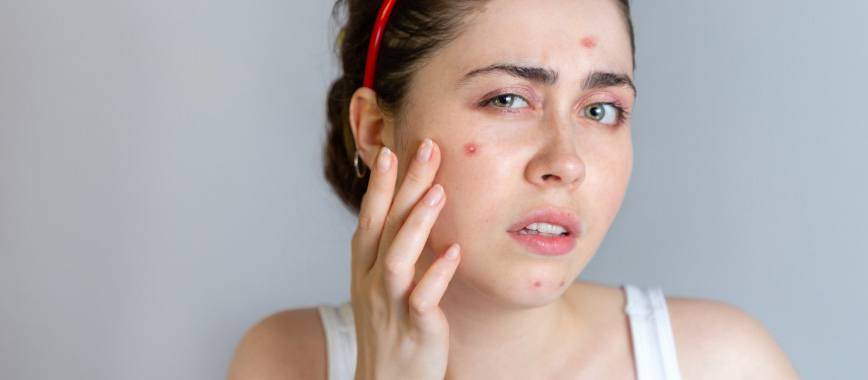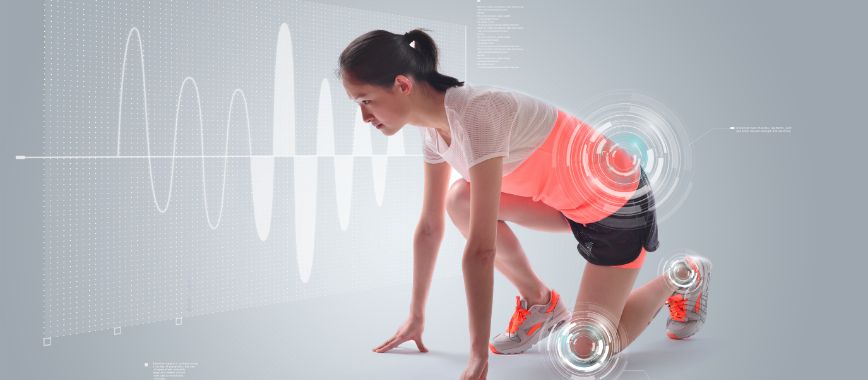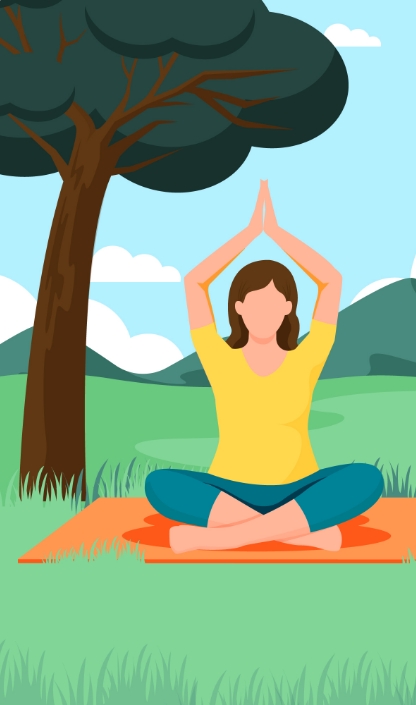Search Healthy Tips here
- Please wait..
Explore categories
Why pimples happen, how to get over it?

Pimples, also known as acne, occur when the pores on your skin become clogged with oil, dead skin cells, and bacteria. They are most commonly seen during puberty when hormonal changes increase oil production in the skin. However, pimples can affect individuals of all ages due to various factors such as genetics, stress, hormonal imbalances, and certain medications.
To get over pimples and achieve clearer skin, consider the following tips:
Maintain a Consistent Skincare Routine:
- Cleanse your face twice a day using a gentle cleanser to remove dirt, oil, and impurities.
- Avoid harsh scrubbing, as it can irritate the skin and worsen acne.
- Use oil-free, non-comedogenic (non-pore-clogging) skincare products.
Avoid Touching Your Face:
- Refrain from touching your face with dirty hands as it can transfer bacteria and irritate the skin.
- Avoid popping or picking at pimples, as it can lead to scarring and further inflammation.
Use Non-Comedogenic Makeup:
- Opt for makeup products labelled as non-comedogenic or oil-free to prevent pore clogging.
- Ensure proper removal of makeup before going to bed to allow your skin to breathe.
Maintain a Healthy Diet:
- Consume a balanced diet rich in fruits, vegetables, whole grains, and lean proteins.
- Limit your intake of processed foods, sugary snacks, and beverages, as they may contribute to acne flare-ups in some individuals.
Stay Hydrated:
- Drink an adequate amount of water daily to keep your skin hydrated and promote overall skin health.
Manage Stress:
- Stress can trigger hormonal imbalances that may worsen acne. Practice stress management techniques such as exercise, meditation, and deep breathing exercises.
Avoid Excessive Sun Exposure:
- While limited sun exposure can have a drying effect on pimples, excessive exposure can lead to skin damage and worsen acne. Use sunscreen with at least SPF 30, and wear protective clothing when spending time outdoors.
Seek Professional Help:
- If over-the-counter remedies and lifestyle changes don't improve your acne, consult a dermatologist.
- Dermatologists can provide personalized advice, prescribe medications, or recommend treatments like topical creams, oral medications, or procedures such as chemical peels or laser therapy.
Remember, treating acne takes time, and what works for one person may not work for another. Be patient, consistent with your skincare routine, and seek professional guidance when needed.






